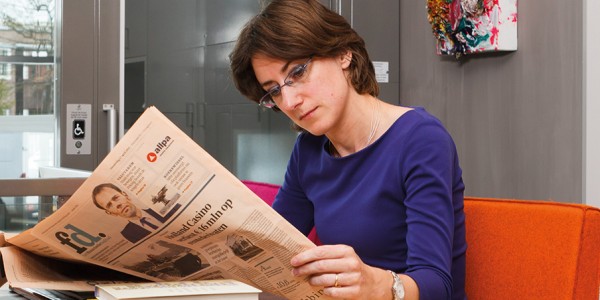
Compound families: the arrival of a new partner
In principle, everyone is free to reshape life after divorce as they see fit. Particularly when children are involved, however, ex-partners are not free to do so. After all, at what point do you introduce a new partner to your children? And what do you expect from your ex-partner in this? A subject which, legally speaking, is not the first to come to the minds of family lawyers, but which is certainly - and rightly! - the interest of divorced parents and family lawyers.
Two third composite families break up again within five years
You may have seen recent newspaper articles in which research by the vFAS (the Association of Family and Inheritance Law Attorneys and Divorce Mediators) shows that two out of three composite families do not stay together for more than five years. Often the break-up is due to poor agreements on finances or dealing with an ex-partner. For the parent with a new relationship it can be of great importance to prevent a repeat of the situation and to stay in good contact with the other parent and the new partner after the divorce.
At the same time, this does require something of an ex-partner. Not everyone likes to see his or her ex enter into a new relationship, and sometimes this still hurts, even though their own relationship with the ex-partner in question is a thing of the past. And what about the children? They too are not always comfortable with a new partner.
Legal possibilities?
Although these issues are important and deserve attention, from a legal point of view they receive little attention, because the legal possibilities to submit this to a judge, for example, are limited. The judge does come into play when it comes to legal issues, such as the possible maintenance obligation of a stepparent, or, for example, a request by one of the parents to move with the children or to enroll a child in a new or different school.
What did come before the District Court of North Holland last year was the question of whether a child may address the new partner of one of the parents as mom or dad (District Court of North Holland May 11, 2022, ECLI:NL:RBNHO:2022:4289). In that case, the court considered that a child has one mother and one father and that this should be and remain clear to a child. In this case, the court ruled that there may be confusion for a child about his or her parentage and family ties if the child has and is given the freedom to also address father's new partner with mom. According to the court, this may lead to problems in the child's development. According to the court, the exclusive use of the appellation form "mama" for a child's mother also helps ensure that the bond between the child and the mother is not disrupted by the role of the new partner. The court therefore granted the mother's request that only she should be addressed as "mommy.
An interesting ruling, but at the same time there are many examples of children where things do go well and the term 'bonus parent' is becoming more and more common in society.
In the case of divorce mediation, vFAS lawyers pay attention to this 'problem' and discuss how to deal with the arrival of a new partner. It is agreed that parents remain the parents of the children and that terms such as father/mother/papa/mom remain reserved for the parents and will not be given to another, except with the express consent of the other parent. Parents can also make agreements with each other about the introduction of a new partner to the children, for example at what time this happens and in what way (preferably: by mutual agreement). Agreements can also be made about the role of the new partner in the care and upbringing of the children, for example that parents remain primarily responsible for this. All in all, more is possible by mutual agreement than when it comes down to the legal possibilities, not to mention their practical feasibility.
It is therefore worthwhile talking to your (ex-)partner before and after a divorce.
Do you have specific questions about the arrival and introduction of a new partner? Please feel free to contact me or one of my colleagues.


